Description
ABSTRACT
Establishing Disruption and Loss of Productivity Claims in Construction Projects: What is Required of the Contractor
Offornze D Amucheazi, SAN* and Osinachi V Nwandem**
Several contracts entitle contractors to claim reimbursement on the grounds of disruption/loss of productivity when they incur additional labour and costs in keeping with the employers’ instructions, changes, actions, or inactions. However, despite this entitlement, contractors have found it difficult to prove disruption claims and secure reimbursement. It is because of this difficulty that disruption claims largely fail. The solution, therefore, lies in a proper understanding of what disruption/loss of productivity is all about and what contractors must establish to validate their disruption claims. A proper understanding of how to prove disruption claims is imperative in this period of the COVID-19 pandemic, where disruptions/loss of productivity on construction projects are most likely to be rampant. This paper delivers a detailed study of the key requirements necessary for successfully establishing disruption/loss of productivity suffered because of complying with the employer’s COVID-19 related instructions. In achieving the aim of this paper, this paper referred to several decided cases and the various standard forms of contracts commonly used in the Nigerian construction industry such as the Federal Ministry of Works Standard Conditions of Contract (Road Works) in Nigeria, 1999 Edition, the Federal Ministry of Works and Housing Standard Form of Building Contract in Nigeria 1990 and the FIDIC Red Book 1999 edition. This paper will serve as a practical guide to contractors, employers, and arbitrators as it provides simple information on what parties should consider before making disruptions claims. It provides in-depth guidance on the elements that the contractor must establish to succeed in a disruption/loss of productivity claims.
Keywords: Disruption, Loss of Productivity, Construction Contract, COVID-19.
INTRODUCTION
When the contractor enters a construction contract, the employer, amongst other things, assures the contractor that it will execute the project with no hindrance, disturbance, or interruption from the employer. In several cases, acts or omissions of the employer may eventually interrupt the contractor’s activities, causing the contractor to incur additional labour and costs. The employer’s instructions, issued to the contractor owing to COVID-19 and its related orders, are examples of interruption of the contractor’s activities. Upon disruption or interruption of the contractor’s activities, the contractor loses productivity and incurs additional labour and costs. When situations like this occur, most contracts will entitle the contractor to compensation in the form of additional payment.
* PhD. Senior Advocate of Nigeria (SAN), FCIArb, FICIARB. Senior Partner, Amucheazi, Ozioko & Co, Legal Practitioners and Arbitrators (Abuja and Enugu) and Professor of Law, Faculty of Law, Nnamdi Azikiwe University, Awka, Nigeria. Email: of******@***oo.com.
** LL.B (Rivers State University), BL, LL.M (University of Ibadan). Membership candidate of the Institute of Construction Industry Arbitrators (ICIArb), Associate at ǼLEX Legal Practitioners & Arbitrators. Email: os*************@***il.com.

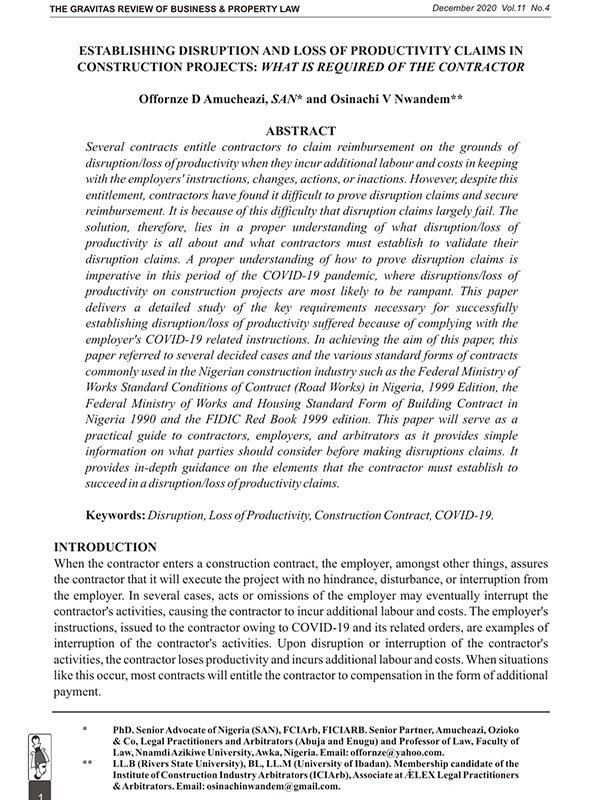
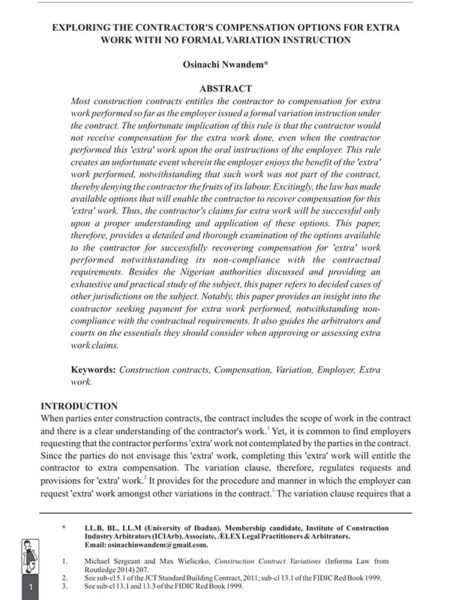
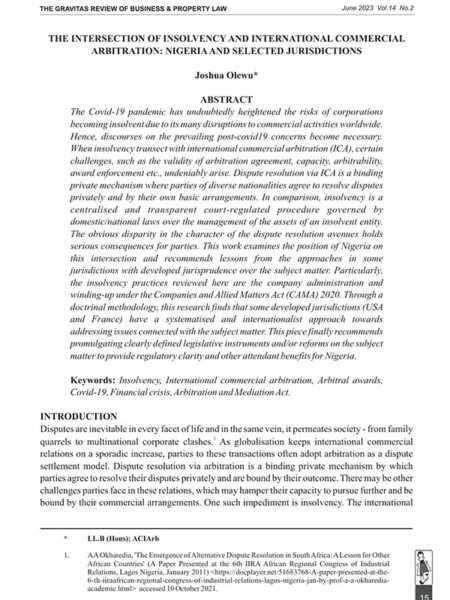
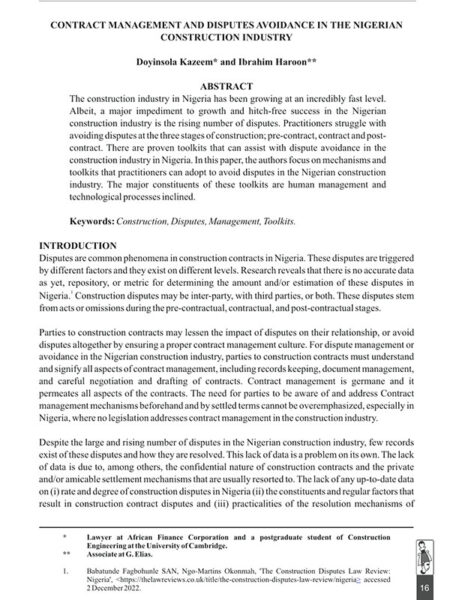
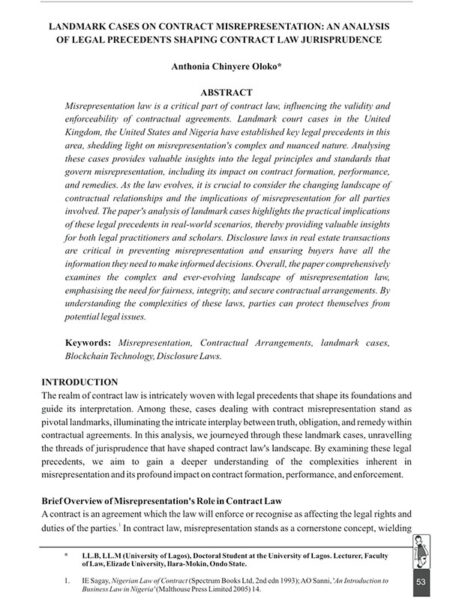


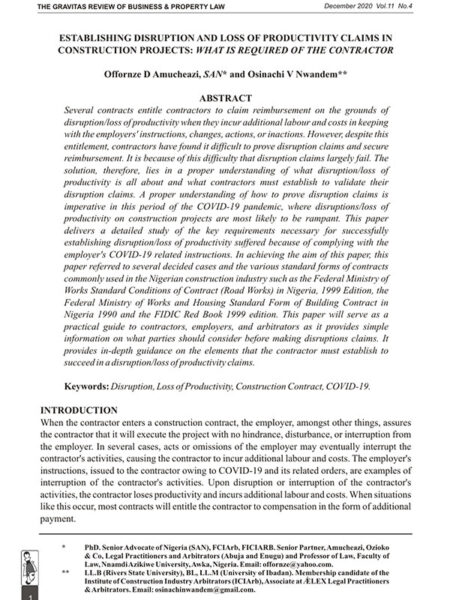
Reviews
There are no reviews yet.